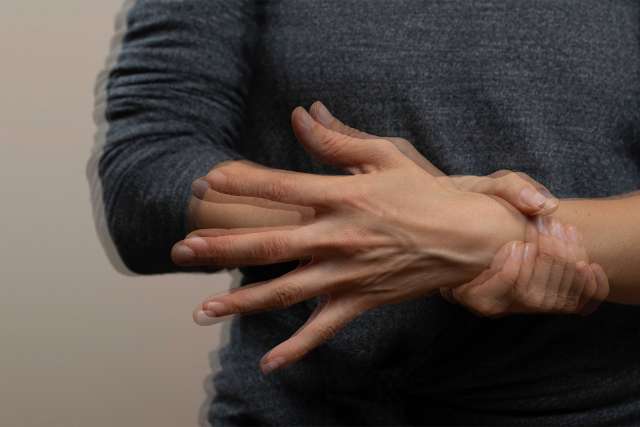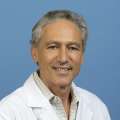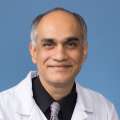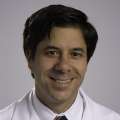UCLA Levine Family Center for Movement Disorders
UCLA Health neurologists treat adults and children with movement disorders, including Wilson, Huntington and Parkinson’s disease. Our patients have access to nationally ranked, multispecialty care.
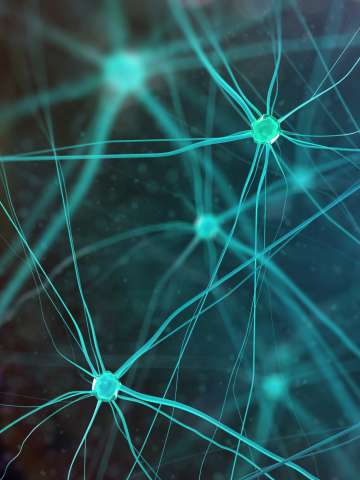
Why choose the UCLA Health Movement Disorders Clinic?
Since the 1960s, our specialists have been providing comprehensive, state-of-the-art care for adults and children with movement disorders. We use a patient-centered, personalized approach to address a full range of conditions.
Highlights of the Movement Disorders Clinic include:
- National recognition: Our program has achieved national recognition for movement disorder care. We are a Wilson Disease Association Center of Excellence and a Huntington’s Disease Society of America Center of Excellence. These designations mean we provide comprehensive, high-quality care for movement disorders. Our neurologists also lead one of six Parkinson’s Disease Research, Education and Clinical Centers (PADRECC) for the U.S. Department of Veterans Affairs. The Southwest PADRECC is located at the West Los Angeles Veterans Affairs Medical Center (VAMC).
- Multispecialty care: Patients benefit from multiple specialists working together on treatment plans. We also have a full-time psychologist who helps patients and caregivers address mental health needs and improve quality of life.
- Research involvement: By participating in research, our specialists continuously learn more about movement disorders and use their knowledge to adjust treatment approaches in real time. Eligible patients also benefit from access to promising new treatments through clinical trials.
- Patient-centered focus: With each treatment plan, our goal is to improve quality of life. We work with primary care physicians and referring neurologists to understand each patient’s needs and how to maximize outcomes.
Conditions movement disorder specialists treat
Movement disorders are neurologic conditions that cause involuntary movements or lack of coordination. Our specialists care for patients with all types of movement disorders, including:
- Ataxia: These degenerative neurological disorders cause difficulty with balance, movement, coordination and swallowing. They usually develop due to damage in parts of the brain that control movement (the cerebellum). One form of ataxia is caused by a defective gene.
- Dystonia: Dystonia causes involuntary and uncontrollable muscle contractions or spasms. Symptoms may affect only one part of the body or the whole body.
- Huntington’s disease: This genetic disorder causes progressive damage to nerve cells in the brain. Symptoms might affect movement, emotions or thinking and understanding (cognition).
- Parkinson’s disease: This progressive nervous system condition usually causes uncontrollable shakes (tremors) or stiffness.
- Tics: Tics may be brief and uncontrollable movements, such as eye twitching or head jerking, or they may be involuntary vocal outbursts.
- Tourette syndrome: This nervous system disorder causes tics. Before the tic, people often feel uncomfortable sensations such as tingling, itching or tension.
- Wilson’s disease: This rare genetic disorder leads to copper buildup in your body. People may have fatigue, abdominal pain, swelling or loss of control over their movements.
Movement disorder treatments we offer
There’s no cure for movement disorders. But several treatments can significantly reduce symptoms and improve quality of life. Our neurologists provide a variety of treatments for movement disorders, including:
- Medications: Certain medicines may help interrupt the nerve signals that cause muscle spasms.
- Occupational therapy (OT): OT can help patients increase fine motor skills and complete daily tasks such as brushing their teeth, bathing or grooming.
- Physical therapy (PT): PT involves specific exercises to help patients increase strength, balance and muscle tone.
- Botulinum toxin injections: A neurologist may administer a botulinum toxin (Botox®) injection directly to the affected muscle. The medication interrupts the nerve signals that cause muscle spasms and reduces symptoms.
- Deep brain stimulation: Not everyone needs deep brain stimulation, but it can help those with severe or complex symptoms. A neurosurgeon places electrodes on the brain. These electrodes connect to an implantable device. The device sends messages to the electrodes to interrupt and stop the nerve signals that cause uncontrollable movements.
Director
Faculty
Neurosurgery
Contact us
Call to request an appointment with a movement disorder specialist at UCLA Health.
Find your care
We provide comprehensive, patient-centered treatment for all types of movement disorders. To learn more about our services, call .
